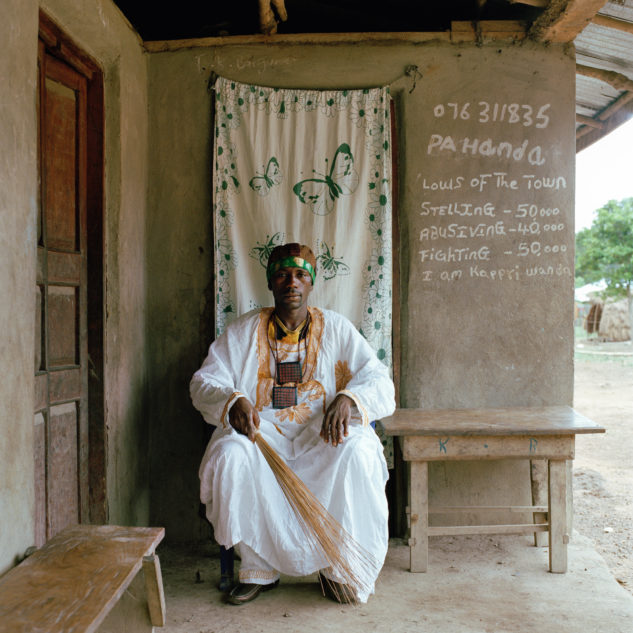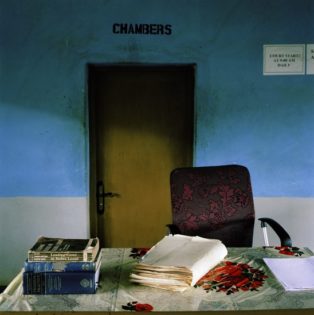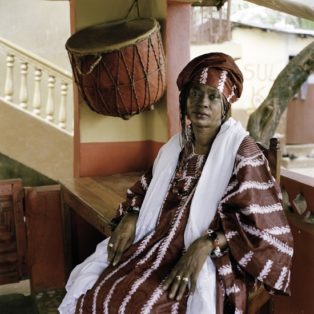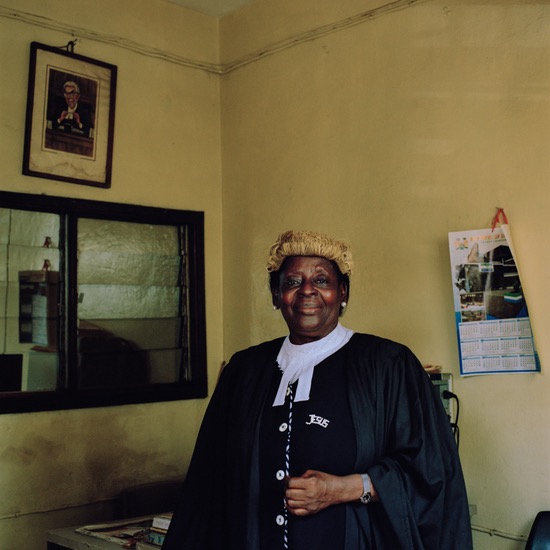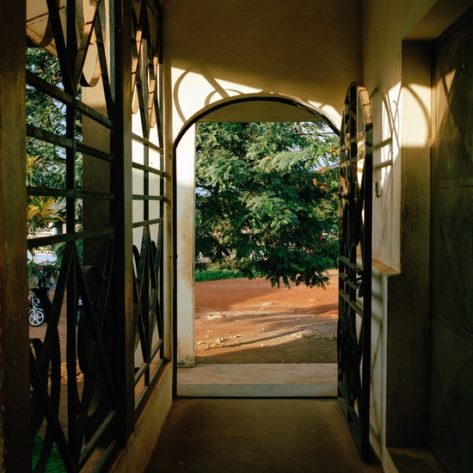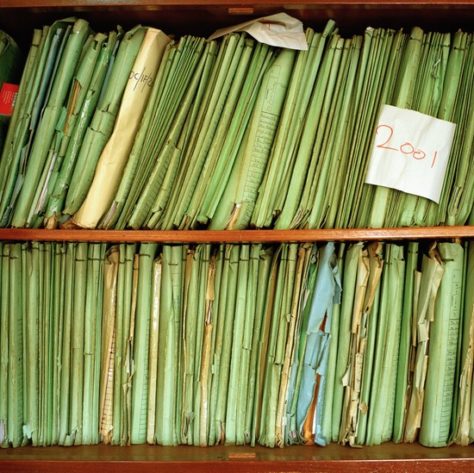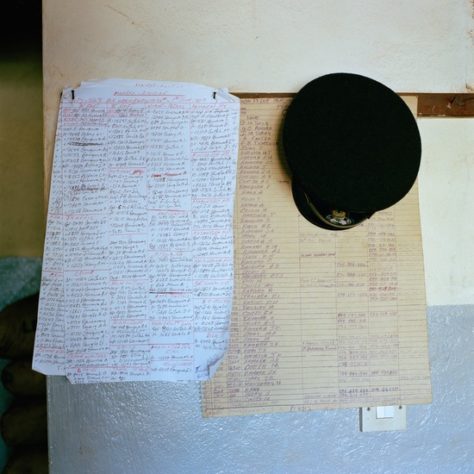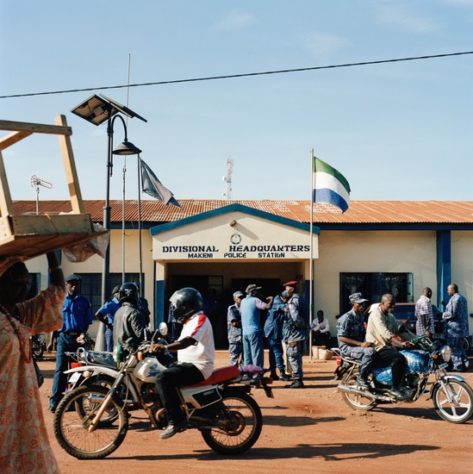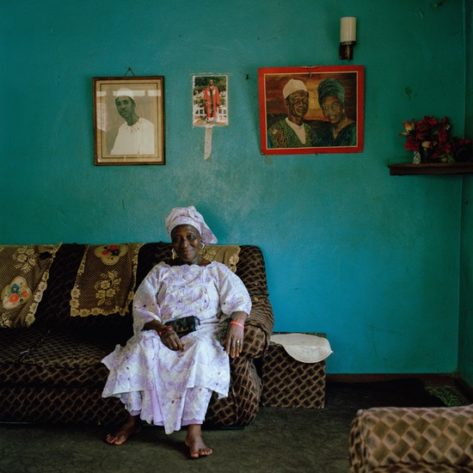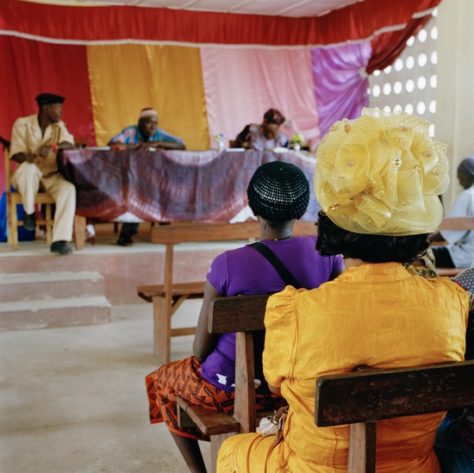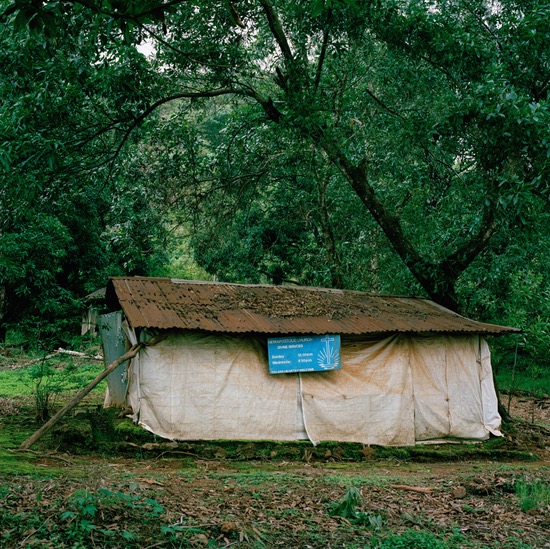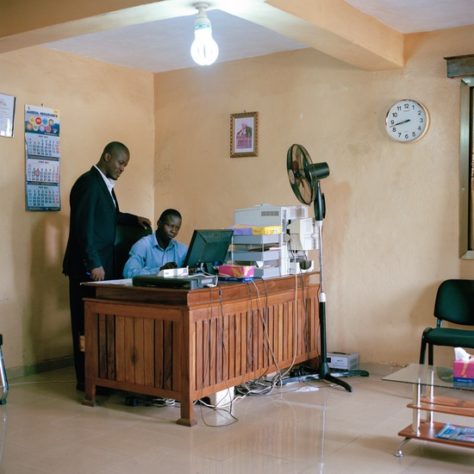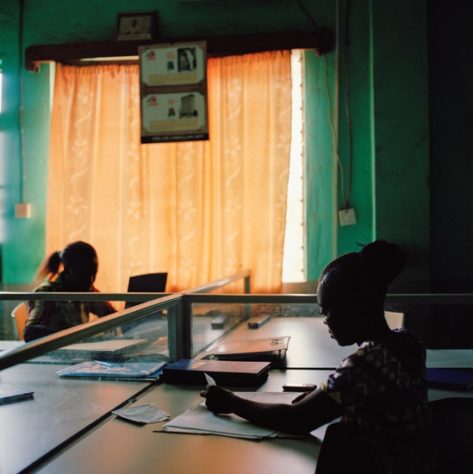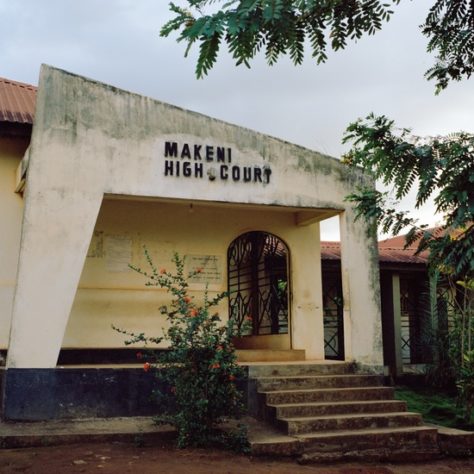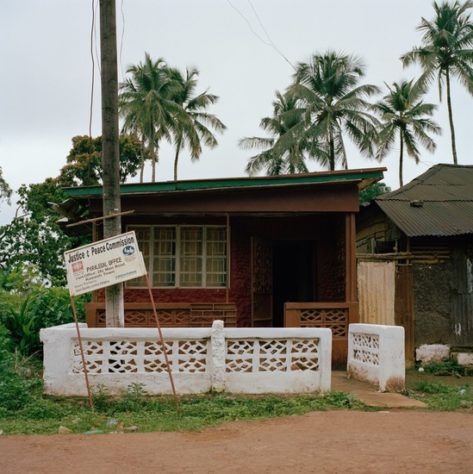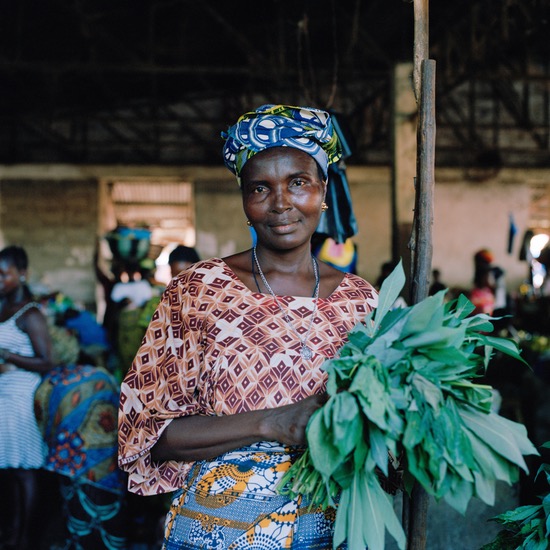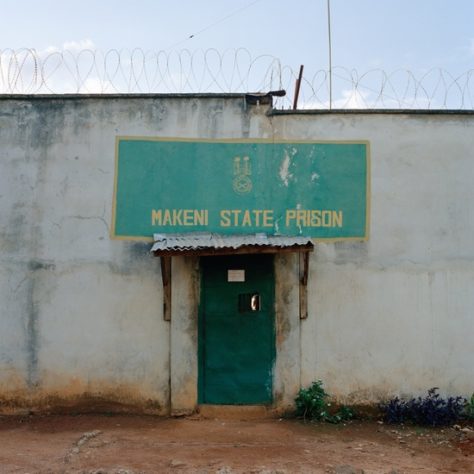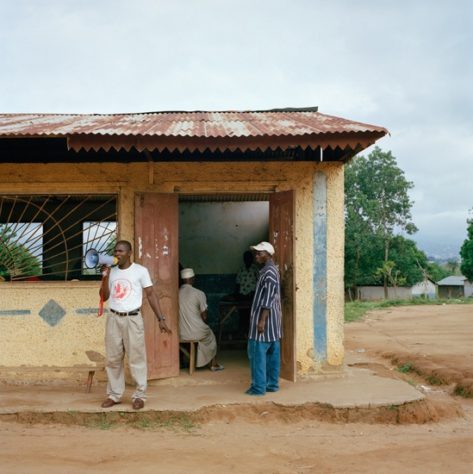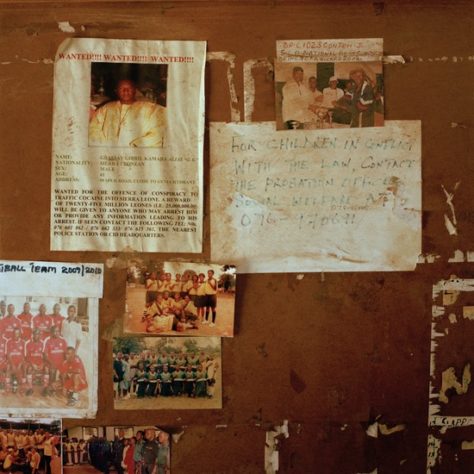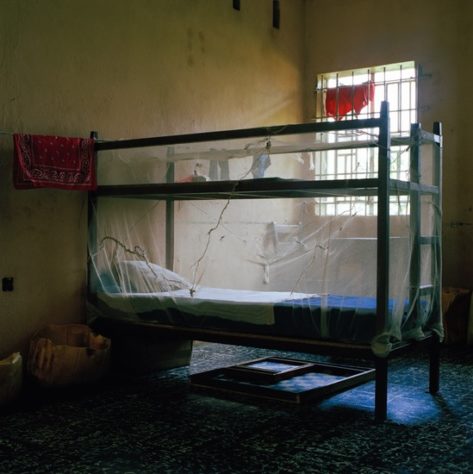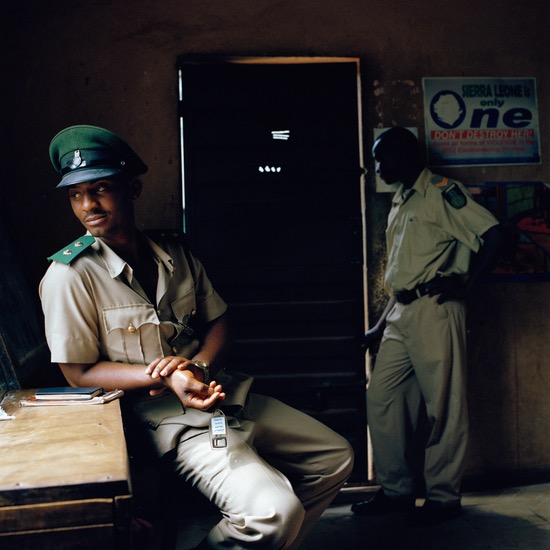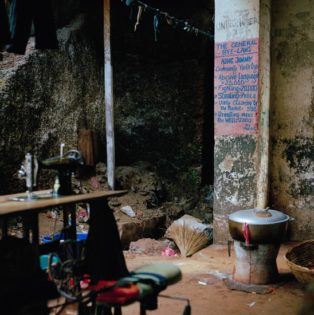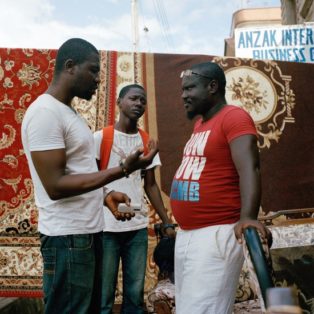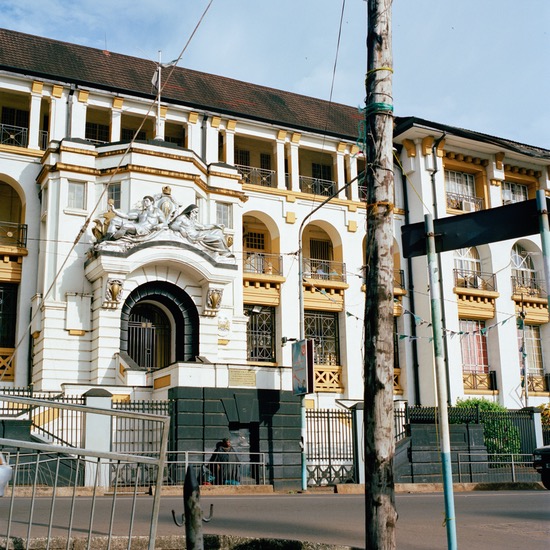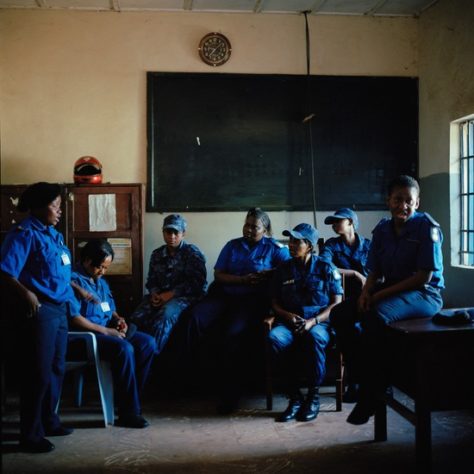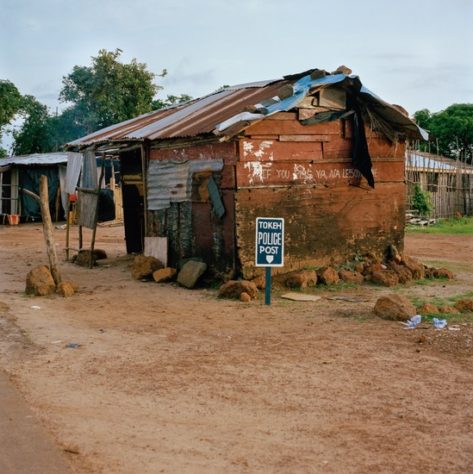Multimedia
Turning Towards Justice
A photographic essay by Aubrey Wade
“In Sierra Leone, we have a lot of places people go to seek justice. One of the places is to the traditional chiefs. I tell you, about seventy per cent of people rely on their traditional chiefs, because they’re just next door. You don’t need any protocol to go to them, you don’t need to write anything. You go to them and then the same day you have justice. And then you go back about your business.” – Daniel Sesay, Program Officer, Namati, Sierra Leone
“Corruption affects the daily lives of citizens in Sierra Leone. As you travel around in basic transport, you see police harassing drivers for bribes. You go to a rural hospital and they ask you to pay for free drugs. You go to immigration for a passport and they ask you to pay more than is necessary. You go to the police and they ask you to pay before they’ll take your statement. Schools are built sub-standard.You don’t get a contract if you don’t offer a kickback. These are direct issues. I would define corruption in very simple terms: you take public resources and convert them for personal gain.” – Joseph Fitzgerald Kamara, Anti-Corruption Commissioner, Sierra Leone
“Justice is a situation where people get what they deserve: if their rights are violated, they have remedy for it; if they are entitled to some development opportunity, they have it. For me, justice is treating people fairly, honestly, openly, in a way where people are able ask questions and make free and informed decisions.” – Benedict Jalloh, Executive Director, Access to Justice Law Centre, Makeni
“The truth is that lawyers don’t want to do everything that a paralegal will do. A lawyer will not travel for two hours to a village to find a surety. A lot of lawyers are not necessarily good at client care, they’re not able to spend that time in a prison supporting someone, or explaining a legal process, or make sure that a pregnant woman who’s in prison gets to go to hospital for medical treatment. That’s really the kind of work that paralegals do.” – Sabrina Mahtani, Co-Founder and Executive Director, AdvocAid, Sierra Leone
“There are certain civil issues that really only need mediation or negotiation, they don’t actually need to go to court. For example, a farmer contracts someone within the community to brush his farm, but then doesn’t have the physical cash to pay for the work. Paralegals can handle cases like this. The farmer may have something else he can give as payment, maybe palm oil, or rice seedlings. Otherwise, the farmer will have to leave his or her work and travel miles and miles to access the court. And maybe they will say: ‘come next week’. The courts are dealing with piles and piles of cases. But the paralegals, they are at people’s doorsteps.”- Achmed Sesay, Legal Empowerment Advocate, Namati, Sierra Leone
“In Sierra Leone, the saying is that ‘security is everyone’s business.’ People want to live in a safe and secure environment, and in order to do that, citizens need to know that if security is breached – if their personal security is breached – they have an avenue to go to in order to access justice. Whether their house gets broken into, or they are attacked in the street, people need to feel that there’s a way of accessing justice.” – Olayinka Creighton-Randall, Coordinator, Justice Sector Coordination Office, Freetown, Sierra Leone.
“Us paralegals, we have some knowledge in community laws, customary law, and also we have some knowledge in formal law. So we interface between these two justice sectors, actually. We work under the supervision of a trained and practicing lawyer. I explain the relationship between the lawyer and the paralegal as just like the relationship between the doctor and the nurse. Taking into consideration the limited number of lawyers we have in the country, the paralegals are really crucial.” – Andrew Kponeh, Lead Paralegal, Justice and Peace Commission, Kossoh Town, Sierra Leone.
“Paralegals conduct meetings, focus group discussions and mediations in communities. This is where they build trust and confidence. They work with traditional institutions – chiefs, mamie queens, youth leaders, traditional leaders, even Sowehs (head women) and leaders of the Poro secret societies. Inside those interactions, communities start to see paralegals and law enforcement officers as partners, rather than isolated units that are waiting to jump at opportunities to exploit them.” – Benedict Jalloh, Executive Director, Access to Justice Law Centre, Makeni.
“The paralegal is a front-line justice service provider. Front-line in the sense that he is all over: he is a social worker, a justice provider, a teacher – you name it.Paralegals are called community-based because they are in the community. I remember the words of one community leader who said to me once, ‘You paralegals, you are indeed multipurpose. You are not just limited by justice services, but at the same time you provide social services to the people.’ I was very, very pleased with that commendation.”-Andrew Kponeh, Lead Paralegal, Justice and Peace Commission, Kossoh Town, Sierra Leone.
“We once had a case in Moyamba, a paralegal traveled to the police station and found a girl there who had been arrested for trying to commit suicide. Her aunt had reported her to the police and the police wanted to charge her. In a place like Moyamba where there are very few NGOs and lawyers, that girl probably would have remained in the police station for a very long time if a paralegal hadn’t intervened. The paralegal explained to the family and to the police that this isn’t a crime, this is a girl in need of help. She worked hard to ensure that this girl was released. Otherwise, the girl could have easily ended up in a magistrate’s court and then in a prison for a couple of months.” – Sabrina Mahtani, Co-Founder and Executive Director, AdvocAid, Sierra Leone.
“I personally see the paralegal movement in Sierra Leone as a contribution to a never-again campaign. The youth now have somewhere to voice their complaints, they have people who will take up their issues, people who will mediate cases between the youth and the elders, and also address other injustices taking place within the community. This is a contribution toward preventing the factors that led to the war.” – Daniel Sesay, Program Officer, Namati, Sierra Leone
A paralegal is a person who is able to connect community court structures and traditional institutions in order to facilitate justice for people who have otherwise not been able to access justice in their communities. It is someone who will stand in solidarity with people who can be, and who are, oppressed and abused, and help them to develop their self-esteem and confidence and help them understand the context and structures into which they can walk, and demand justice for themselves.” – Benedict Jalloh, Executive Director, Access to Justice Law Center, Makeni.


